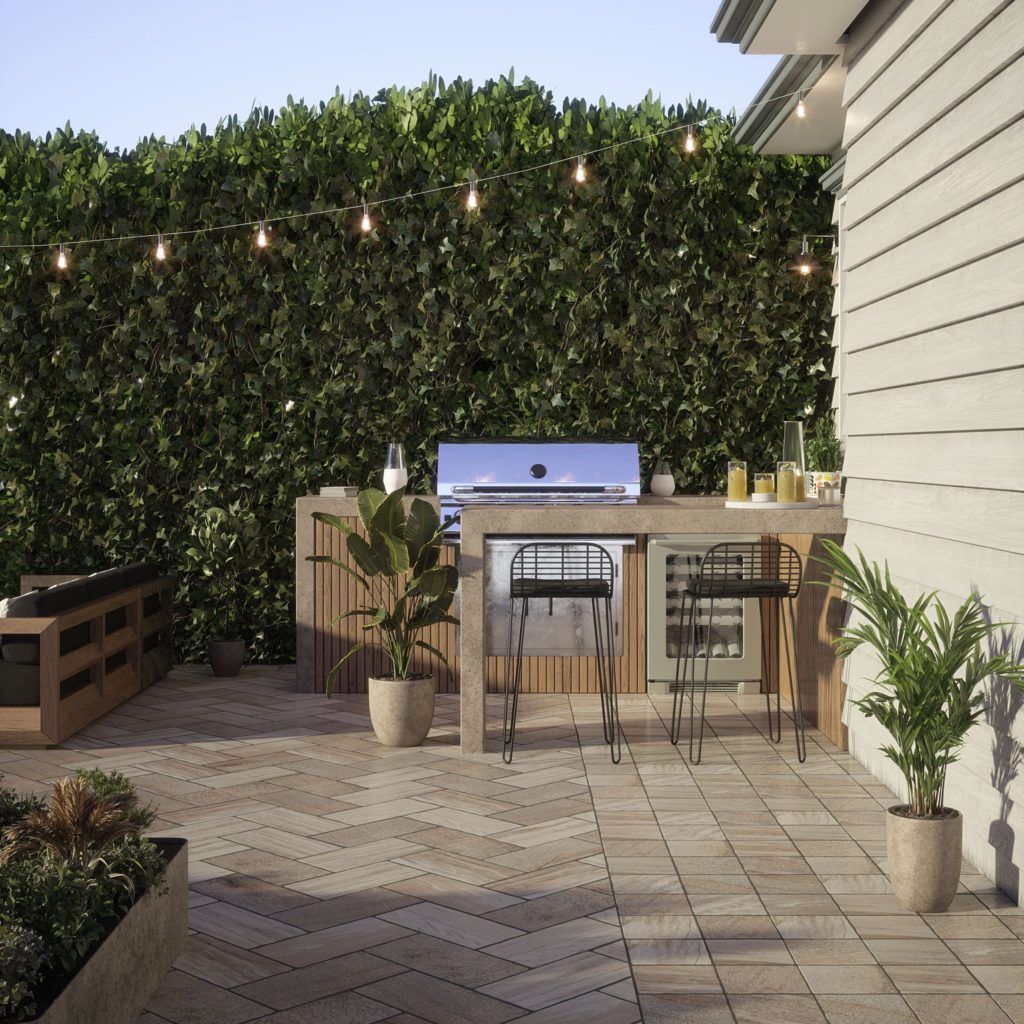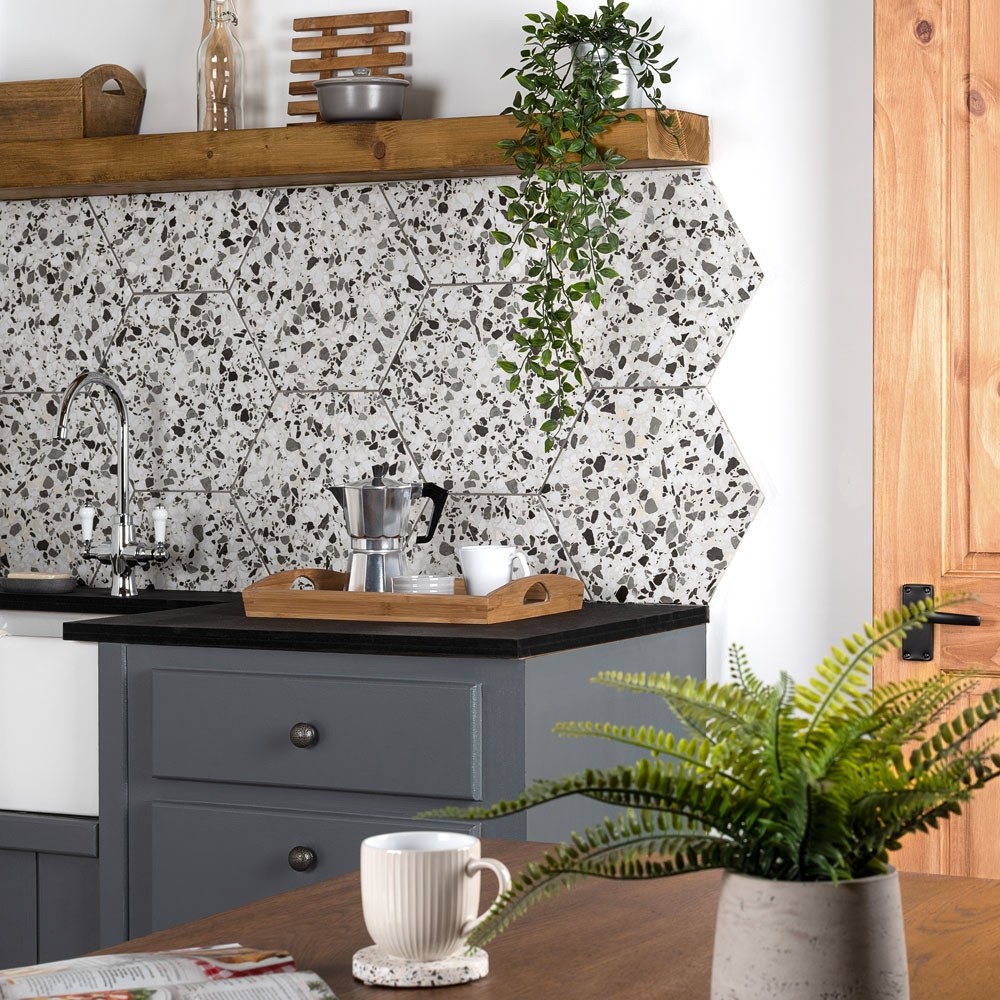
Walls and Floors are the largest independent tile retailer in the UK. They stock more than 6,000 stylish tile designs and have been awarded one of the leading tile specialists in Britain. Besides helping their customers achieve their dream interior, the brand is also committed to sustainability.
We are so thrilled to welcome them to the Tribe, where they will be working with us to protect the lungs of our planet. The business has already implemented an array of eco-conscious actions to reduce its carbon footprint including supplying more eco-conscious materials and advising customers on more sustainable interior choices.
Continue reading to learn about how they came into being and how they have effortlessly actioned sustainability in business.

Like lots of other businesses that are a part of One tribe, Walls and Floors is working to strike a balance between profit and purpose.
As a result, they have implemented lots of sustainable practices in their business to reduce their carbon footprint. The company is also committed to educating its customers about how they can source eco-conscious tiles for a more environmentally-friendly home.
They do a lot of this education over on their blog, where they teach customers about what to look for when shopping for environmentally-friendly tiles. Moreover, Walls and Floors have several sustainable tiles on their website. For example, their Yuri 90% Recycled Tiles are made of 90% recycled raw materials, minerals and water. The tiles are created with a planet-friendly manufacturing process with zero compromise on the finish and quality.
These tiles are available in two different sizes and have an R10 anti-slip surface. They are suitable for any area in the home and are aesthetically beautiful, giving off a raw industrial feel. Walls and Floors are exclusive retailers of these tiles. The company also educates their customers on how to select eco-friendly tiles. In addition to these sustainable tiles, the brand is committed to stocking tiles that have good longevity.

Walls and Floors believe tiles shouldn’t comprise the health of our planet. They are doing lots of other actions to ensure they are offering a product that has less of an impact on the Earth. For one thing, the business is ensuring its products have a long life cycle.
As we know, one way to determine whether a product is sustainable is its longevity. Tiles that last a long time reduce money, time, and resources spent on manufacturing, extracting raw materials, installation, demolition, transportation, and disposal requirements. Walls and Floors stock mainly porcelain and ceramic tiles to ensure they are providing customers with long-lasting products.
In addition, the business is committed to ensuring its products pose no threats to human and animal health. Indoor air quality has become a topic of discussion because volatile organic compounds have been found to contribute to a range of health concerns.
Therefore, sustainable tiles must take the health of humans, animals, and the planet into account. Walls and Floors use high-performance grouts and adhesives, so finished walls and floors can inhibit the growth of fungus, mildew, and mould. They understand the importance of sourcing tiles from like-minded factories. For tiles to be sustainable, they should be sourced from factories that have environmental policies in place. Walls and Floors source their tiles from modern state-of-the-art factories which adhere to eco-friendly and sustainable policies.
Some of these policies include using recycled ceramics in the production process, manufacturers generating their own energy, and using recycled card for their boxes. In addition to the above efforts, Walls and Floors work to reduce their transport where possible. The brand sources its products from Europe and the UK, while a lot of other suppliers source from the Far South and East America. This means they are reducing their transport footprint significantly.

To add to its current portfolio of sustainability efforts, Walls and Floors have now partnered with us at One Tribe. They will be collaborating with us to protect rainforests with every purchase made on their website. Helping to protect endangered rainforests.
This means when customers buy tiles from their e-commerce store, a portion of the sale will go to projects by indigenous communities. We connect the business directly to rainforest protection charities so that each sale can directly donate and protect rainforests and indigenous tribes.
These charities fund on-the-ground projects to protect and save the land. Through this, their customers can also be part of the solution while the brand reduces its carbon footprint and takes action.
Some of these projects include stopping deforestation, protecting various forests, and saving indigenous lands. With the partnership, they are participating in the United Nations Framework for Climate Change to adopt the UN sustainability goals.
They are a true climate action hero, already saving 30,135 trees and counting! Their climate action stats are fully transparent and can be viewed on the One Tribe website here.
We are very excited to have an innovative business like Walls and Floors join One Tribe. They are taking it on themselves to implement essential sustainable practices that will make a difference. Any business looking to create an environmentally-conscious brand should look to this business for inspiration.
Their efforts show that it is much easier to make the switch than a lot of businesses might think. What’s more, you don’t have to compromise on profit. Instead, you can use sustainability as an opportunity to make your processes more efficient! It is so important that more businesses make climate a priority and do their part to protect the planet.
For more on how you can use your business to have an impact, read about our partnership programme. We’d love to hear from you and help you use your business for good!
Walls, floors, walls and floors, tiles, flooring in UK, tiles in UK, flooring shops in UK, sustainable flooring, sustainable flooring, green materials, shops that reduce their carbon footprint, sustainable flooring shops, sustainability in business, sustainable business practices, sustainable homes, homes and the environment, homes that reduce their carbon footprint, recycled raw materials, recycled tiles, recycled flooring, green and sustainable policies, green and sustainable policies in shops, how to protect the rainforests, protect the rainforests, protect the rainforests
One Tribe is a Climate Action Platform enabling businesses and their customers to make a positive environmental impact.
Eric currently works as an independent consultant at the intersection of nature and climate, focused on catalysing market and non-market solutions to drive the just transition.
He previously was Head of Product at Earthshot Labs, supporting nature conservation and restoration projects across the global south secure project finance. Prior to Earthshot Labs, Eric led nature-based carbon project development for Gorongosa National Park in Mozambique and founded the Carbon Cooperative, a global alliance of leading nature conservation and restoration practitioners exploring carbon finance. After serving in the Peace Corps in Mozambique out of university, he spent much of his 20s working in community-based conservation and ecosystem restoration efforts in Sub-Saharan Africa interspersed with two startup ventures as co-founder and CEO of a mental health tech startup and COO of a sustainable coffee company. Eric has a dual Masters in Environmental Engineering and Environmental Policy from Stanford University where he was a NSF Graduate Research Fellow and a BS in Environmental Engineering from Tufts University.
Alan is a risk management thought-leader, superconnector, and FinTech pioneer. His mission is to enable an Earth Positive economy which includes nature in global accounting systems.
Alan is Founder of Generation Blue, a venture studio dedicated to planetary game changers powered by exponential technologies. Previously, Alan established Natural Capital Markets at Lykke AG, pioneering blockchain based forestry and carbon backed tokens. Alan has over two decades of risk management experience advising global financial institutions, and was a founding member of the RiskMetrics Group, a JPMorgan spin-off. Alan is an investor and advisor to regenerative impact ventures, including TreeBuddy.Earth, Regenativ, and Vlinder Climate.
Lori Whitecalf made history when she became the first woman to be elected Chief of Sweetgrass First Nation in 2011. She served three terms of office from 2011-2017.
Lori took a two-year hiatus from leadership to expand the family ranch and serve as the FSIN Senior Industry Liaison. She was re-elected on November 29. 2019 and again on November 30, 2021, as Chief of Sweetgrass. Chief Whitecalf practises a traditional lifestyle of hunting, fishing and gathering. She currently sits on the following boards: Saskatchewan Indian Institute of Technology, FSIN Lands and Resource Commission, Battle River Treaty 6 Health Centre and Battleford Agency Tribal Chiefs Executive Council, FSIN Women’s Commission.
Tina is the Chief Business Officer for MLTC Industrial Investments, the Economic Development arm of the Meadow Lake Tribal Council. She has a diverse background of experience. Having spent 15 years as a municipal Chief Operating Officer, 20 years involved in Saskatchewan’s Health Authority Board Keewatin Yatthe and 9 years with Northern Lights Board of Education.
She continues as a Board Member with Beaver River Community Futures supporting small business development in her home region. Tina brings a wealth of experience in a variety of fields and many connections to the Indigenous communities of Northern Saskatchewan. In addition Tina holds a BA Advanced from the U of S, a Certificate in Local Government Authority from the U of R and is certified as a Professional Economic Developer for Saskatchewan and a certified Technician Aboriginal Economic Developer (TAED).
Tootoosis’ career spans 40+ years in HRM, political leadership, and Indigenous economic development, as a dedicated bridge builder and advocate for Indigenous causes.
As a key member of the Saskatoon Regional Economic Development Authority (SREDA) team since 2021, he develops strategies for the Truth and Reconciliation Commission final report and Call to Action #92.
He is a graduate of the First Nations University of Canada and a certified Professional Aboriginal Economic Developer. Spearheading various community initiatives while serving as a Chair of the SIEDN while directing ILDII and WIBF. Founder of MGT Consulting Tootoosis is based in Saskatoon, Treaty Six Territory.
Cy Standing (Wakanya Najin in Dakota) has a long and distinguished career including serving overseas as an Electronics Technician in the Royal Canadian Air Force, former Chief of Wahpeton Dakota Nation, former Vice Chief of the Federation of Saskatchewan Indigenous Nations (FSIN), past Executive Director of Community Development Branch of the Department of Northern Saskatchewan as well as an Order in Council appointment to the Federal Parole Board.
Mr. Standing has served as a Director on many Profit and Non-Profit Corporate Boards, including serving as a Director for Affinity Credit Union with assets of over six billion dollars as well as IMI Brokerage and Wanuskewin and is currently a member of the One Tribe Indigenous Carbon Board.